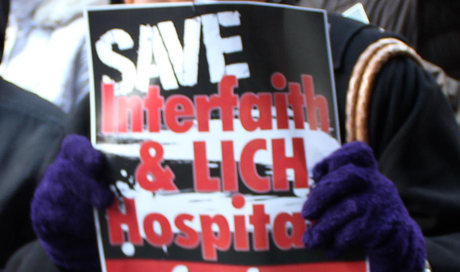SUNY HEARING: Did real estate riches doom LICH? Was there ‘criminal action’?

lich_sign_B.jpg
Councilman Brad Lander clashed Thursday with SUNY Chairman Carl McCall, questioning whether SUNY’s acquisition of Long Island College Hospital was a transaction driven by real estate rather than medical considerations.
Then state Sen. Eric Adams, a leading candidate to succeed Marty Markowitz as borough president, raised the stakes, suggesting there be a probe of possible “criminal action” in the removal from LICH coffers of millions of dollars bequeathed to the hospital by a local benefactor.
Adams and Lander spoke at a public hearing of the SUNY board in Midtown Manhattan. After the hearing, the board was expected to act on a recommendation that it close LICH.